Media playback is unsupported on your device
The man accused of murdering African American George Floyd, whose death sparked global protests, is to appear in court for the first time.
Derek Chauvin, a white policeman, knelt on Mr Floyd's neck for almost nine minutes while he was being arrested in Minneapolis on 25 May.
Mr Chauvin, who has since been sacked, will face a judge in Minnesota remotely on murder and manslaughter charges.
Three other officers were also fired and charged with aiding and abetting.
Mourners in Houston, Texas, where Mr Floyd lived before moving to Minneapolis, have been viewing his body, publicly on display for six hours at The Fountain of Praise church.
On Tuesday, a private funeral service will be held in Houston. Memorial services have already been held in Minneapolis and North Carolina, where Mr Floyd was born.
It is believed a family member escorted Mr Floyd's body on a flight to Texas late on Saturday.
Democratic US presidential candidate Joe Biden is expected to visit Mr Floyd's relatives in Houston to offer his sympathies. Aides to the former vice-president said he would also record a video message for Tuesday's service.
What are the accusations against Chauvin?
He faces three separate charges: unintentional second-degree murder, third-degree murder and second-degree manslaughter, for which the maximum penalties are prison terms of 40, 25 and 10 years respectively.
Further charges could be brought but it appears unlikely he will be accused of first-degree murder as prosecutors would have to prove premeditation, intent and motive, the Associated Press reports.
By bringing multiple charges, prosecutors give jurors a choice and increase the chances of a conviction.
Minneapolis city council has voted to ban chokeholds and neck restraints by police officers, and Democrats in Congress are expected to present sweeping legislation on police reform.
In France, which saw Black Lives Matter protests over the weekend, Interior Minister Christophe Castaner announced that police would no longer be allowed to use chokeholds to arrest people.
It is part of a policy of zero tolerance of racism within the French police. France's police watchdog has revealed that there were 1,500 complaints against officers last year, half of them for alleged assaults.
How are people in Houston mourning Floyd?
Masked and gloved mourners have been filing past Mr Floyd's coffin in line with coronavirus social distancing requirements, with only 15 guests allowed in the church at a time.
Anti-racism protests started by Mr Floyd's death are now entering their third week in the US. Huge rallies have been held in several cities, including Washington DC, New York, Chicago, Los Angeles and San Francisco.
With the rallying cries "Black Lives matter" and "No Justice, No Peace", the demonstrations are among the largest US protests against racism since the 1960s. Saturday's gatherings included a protest in the Texas town of Vidor, once infamous as a stronghold of the Ku Klux Klan white supremacist group.
Episodes of looting and violence have, however, been reported among the peaceful rallies, and President Donald Trump threatened to call up troops to quash the protests.
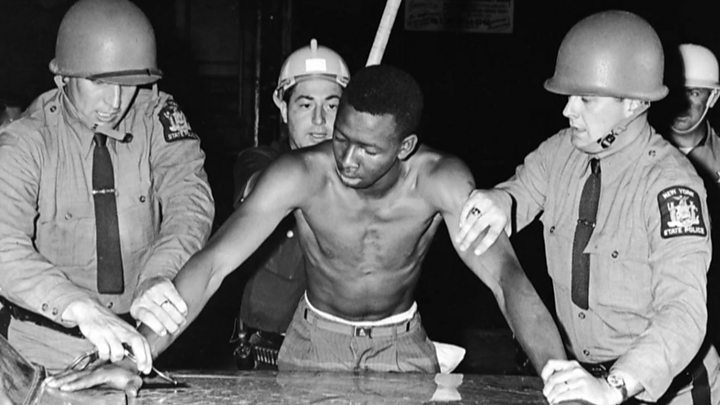
Media playback is unsupported on your device
Security measures were lifted across the US on Sunday as unrest started to ease. New York ended its nearly week-long curfew, and Mr Trump said he was ordering the National Guard to start withdrawing from Washington DC.
More on George Floyd's death
Protesters in European cities including London and Rome also gathered to show their support for Black Lives Matter over the weekend, while anti-racism protests in Australia were attended by tens of thousands.
In the city of Bristol in the UK, protesters tore down a statue of Edward Colston, a prominent 17th Century slave trader.
US protests timeline
25 May 2020
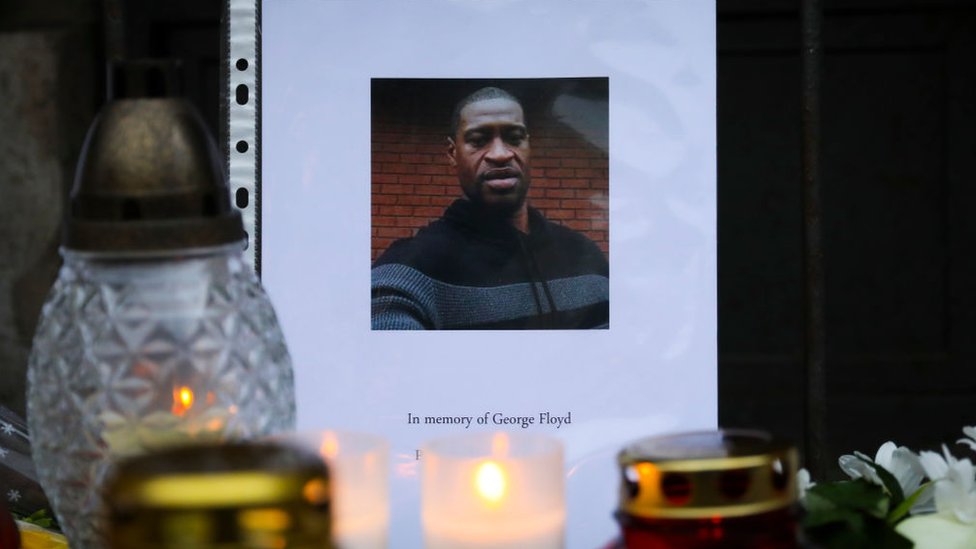
George Floyd dies after being arrested by police outside a shop in Minneapolis, Minnesota. Footage shows a white officer, Derek Chauvin, kneeling on Mr Floyds neck for several minutes while he is pinned to the floor. Mr Floyd is heard repeatedly saying "I cant breathe". He is pronounced dead later in hospital.
26 May
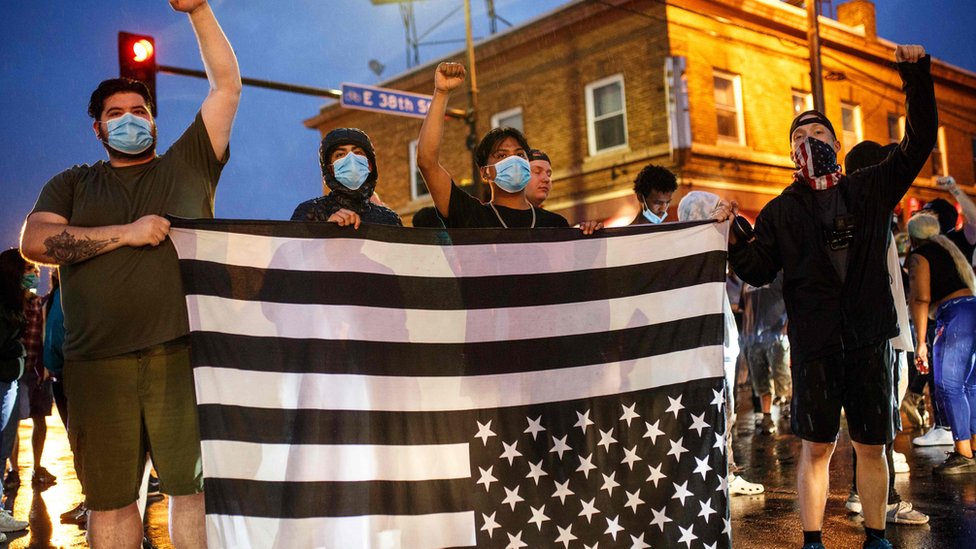
Four officers involved in the arrest of George Floyd are fired. Protests begin as the video of the arrest is shared widely on social media. Hundreds of demonstrators take to the streets of Minneapolis and vandalise police cars and the police station with graffiti.
27 May
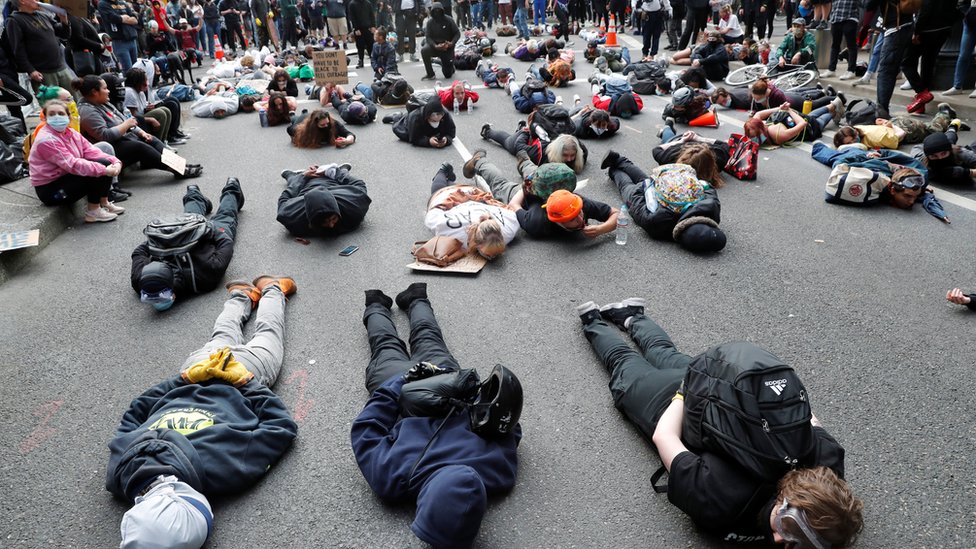
Protests spread to other cities including Memphis and Los Angeles. In some places, like Portland, Oregon, protesters lie in the road, chanting "I cant breathe". Demonstrators again gather around the police station in Minneapolis where the officers involved in George Floyds arrest were based and set fire to it. The building is evacuated and police retreat.
28 May
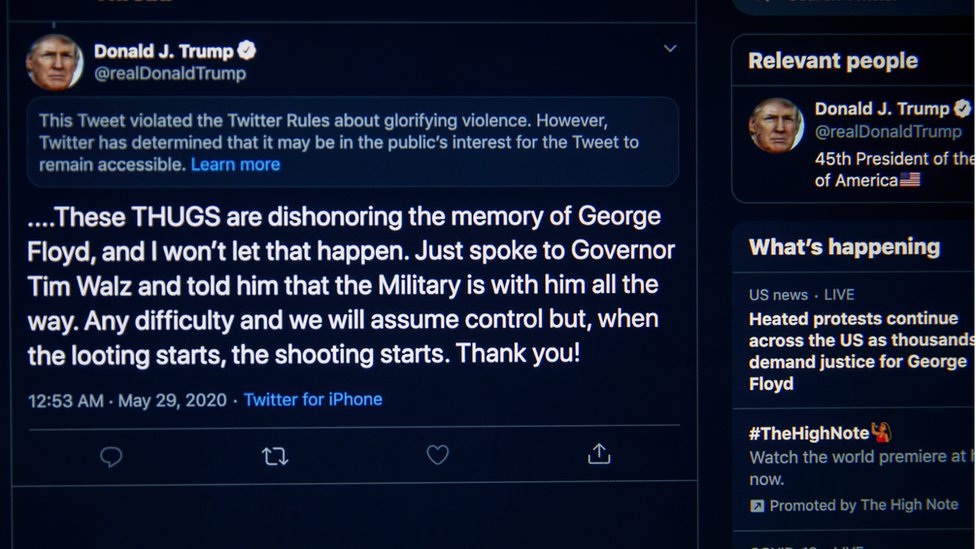
President Trump blames the violence on a lack of leadership in Minneapolis and threatens to send in the National Guard in a tweet. He follows it up in a second tweet with a warning "when the looting starts, the shooting starts". The second tweet is hidden by Twitter for "glorifying violence".
29 May
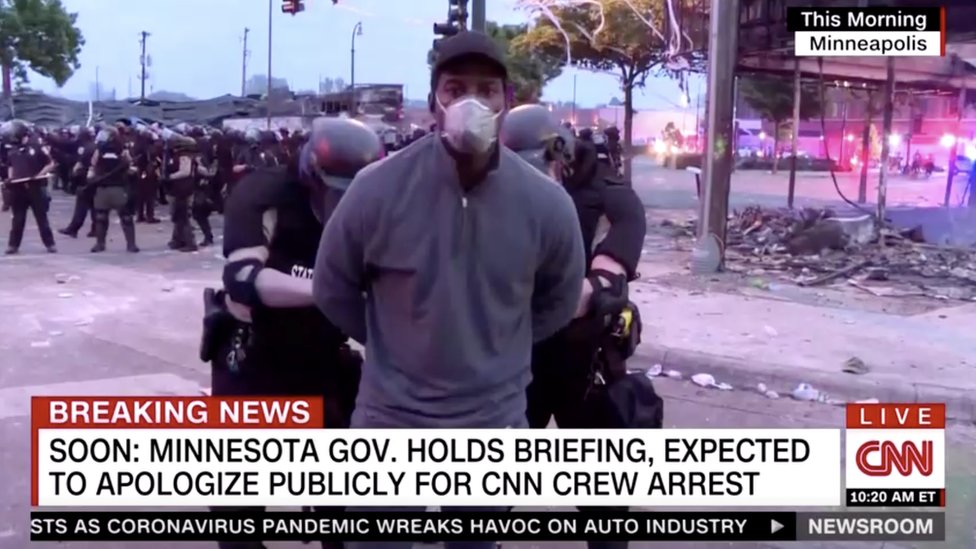
A CNN reporter, Omar Jimenez, is arrested while covering the Minneapolis protest. Mr Jimenez was reporting live when police officers handcuffed him. A few minutes later several of his colleagues are also arrested. They are all later released once they are confirmed to be members of the media.
Derek Chauvin charged with murder
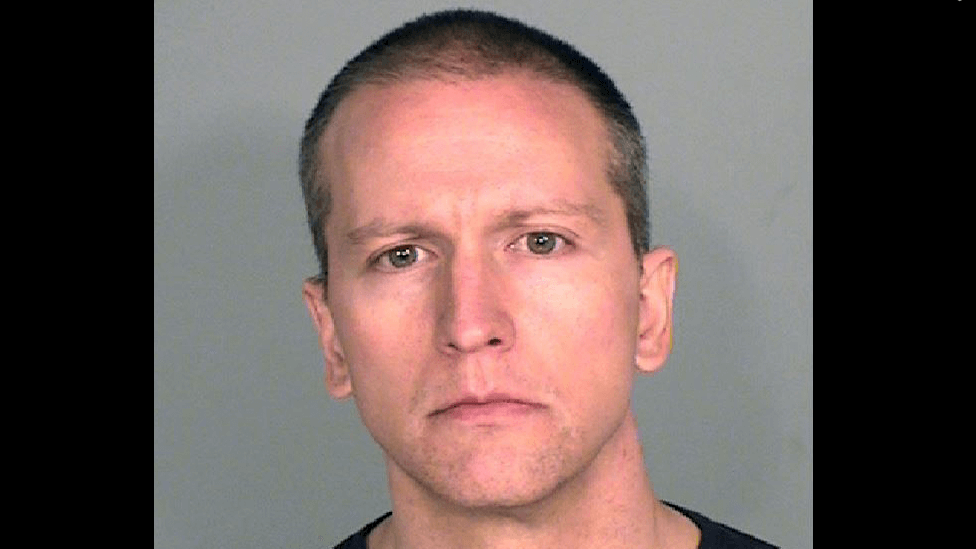
Former Minneapolis police officer Derek Chauvin, 44, is charged with murder and manslaughter. The charges carry a combined maximum 35-year sentence.
Read More – Source



/cdn.vox-cdn.com/uploads/chorus_image/image/65543002/bbc_logo_red.0.jpg)